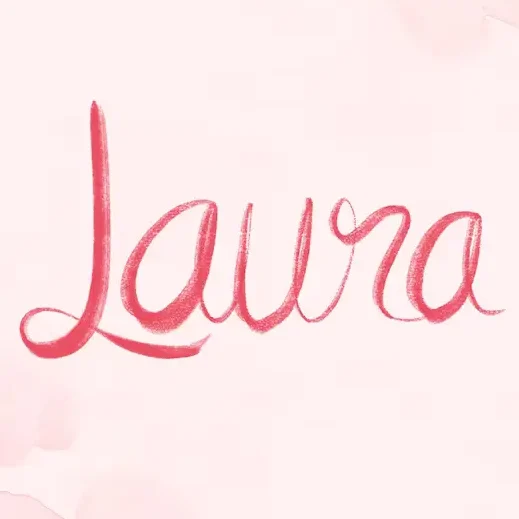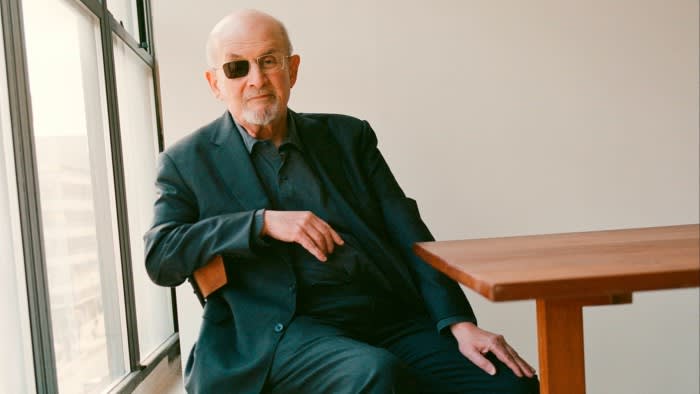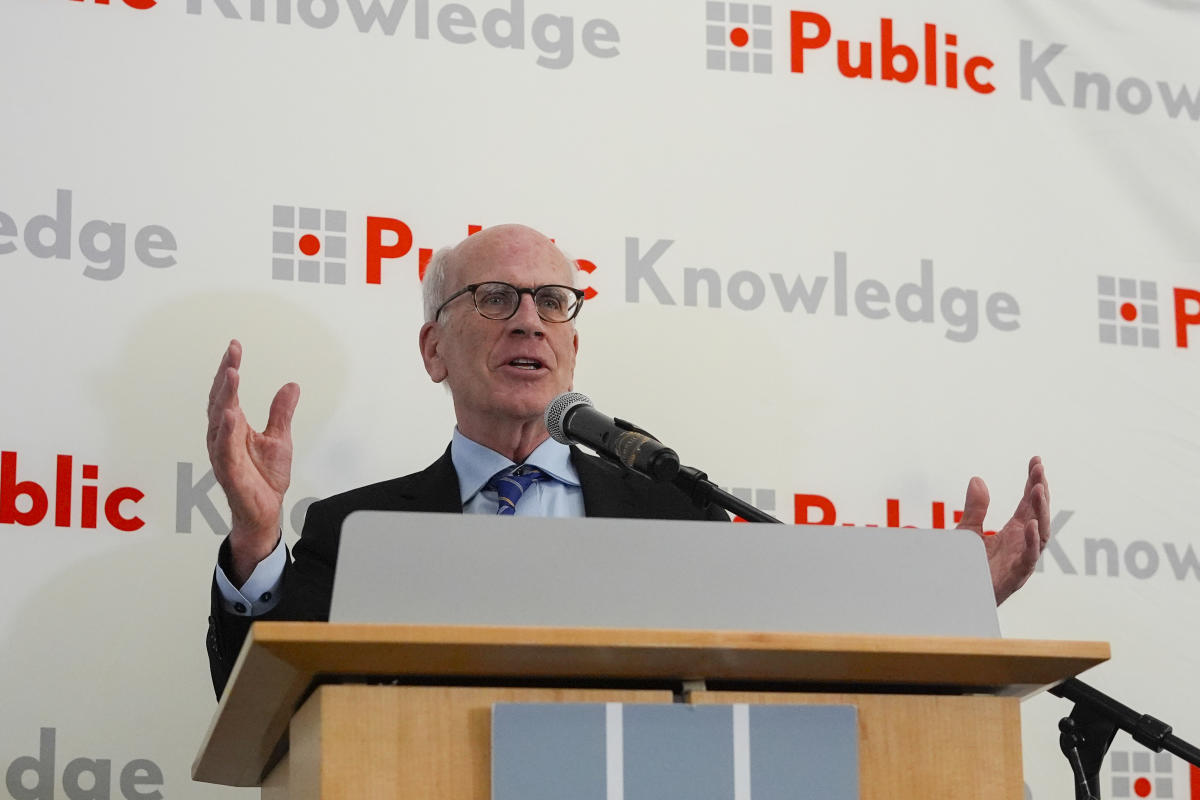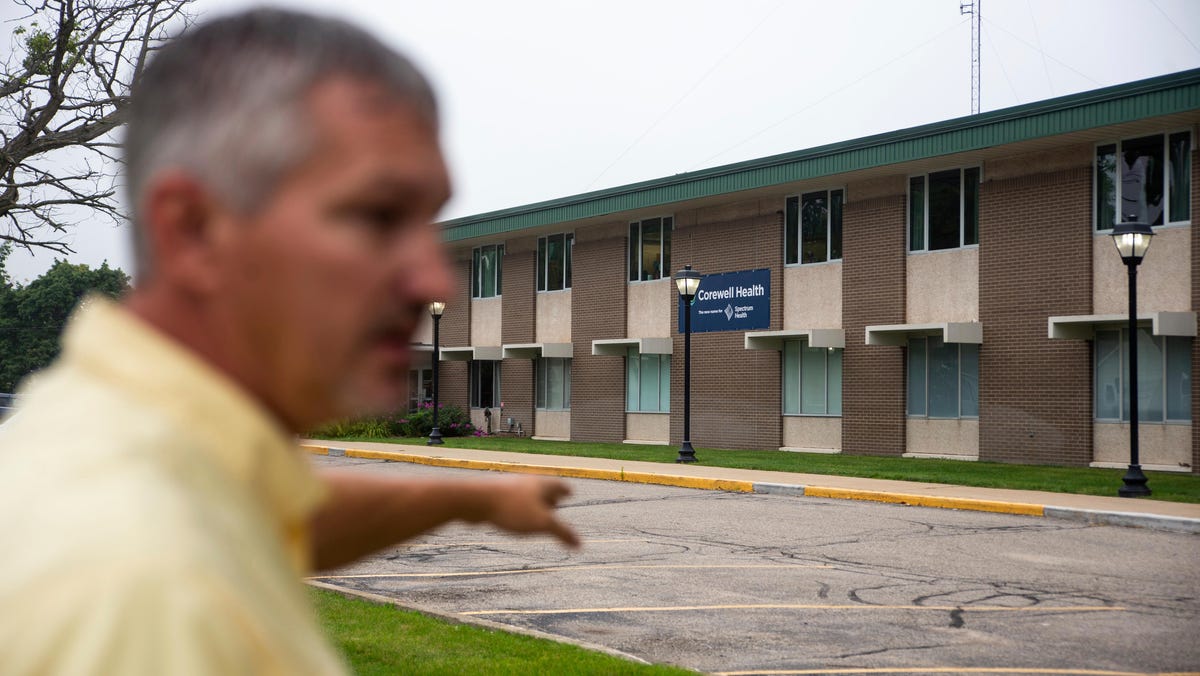In its opening pages, this first-person account of its author’s almost-murder delivers a big, shameless joke. On a balmy summer evening before the stabbing attack that left him blind in the right eye, with a paralysed left hand and a dozen more serious injuries, Salman Rushdie gazed at the moon above the Chautauqua Institution in upstate New York.
The 75-year-old writer mused not just on Indian and Greek divinities but the (apocryphal) first words of Neil Armstrong on the lunar surface. The astronaut, this legend goes, remembered the arguments of his childhood neighbours in Ohio, the Gorskys, over the husband’s pleas for fellatio to his wife: “When the boy next door walks on the moon, that’s when you’ll get that”. Armstrong supposedly stepped down from the lander and muttered: “Good luck, Mr Gorsky.” Rushdie never could resist a comic flight of fancy. This book later recalls that he used to dub divisions over his novel The Satanic Verses as “a quarrel between those with a sense of humour and those without one”.
Knife is not just a candid and fearless book but — against all odds — a defiantly witty one. The coronavirus pandemic gave us many descriptions of assisted breathing on a ventilator, but rarely a patient’s anguished record of “having an armadillo’s tail pushed down your throat”. And then “pulled out of your throat”. Helicoptered on August 12 2022 to a trauma centre in Erie, Pennsylvania, Rushdie needed that ventilator because the deep knife wounds to eye, throat, hand, chest, abdomen and leg inflicted by his assailant left him “on the very point of death”.
Yet he survived and, 20 months later, has published this fizzing, galloping memoir. It has pace, drive, urgency — along with surprise doses of comedy, tenderness and wonder. By a millimetre or so (the blade that reached his optic nerve stopped just shy of the brain), Rushdie could “go on being me”. “The miraculous . . . had crossed a state line. It had travelled from Fiction into Fact.”
By that summer, when the novelist went to speak about “home” at Chautauqua’s annual festival, he had lived openly in New York for two decades. Thirty three years had passed since Ayatollah Khomeini’s fatwa — an Iranian political stunt masquerading as a learned Islamic judgment on The Satanic Verses — had put a target on his back and condemned him to nine years of police-protected seclusion.
Back then in 1989, the Bombay-born author of Midnight’s Children had written five books. By 2022, with his novel Victory City complete, the tally stood at 21. Blissfully married (for a fifth time), intensely happy with the poet, novelist and photographer Rachel Eliza Griffiths, he had “achieved freedom by living like a free man”. The fatwa no longer defined him. Now, in the Chautauqua amphitheatre, came this black-clad “squat missile”, rushing at him like some “murderous ghost from the past”. He turned to face this “Angel of Death”: “There are no injuries on my back.”
The 27 seconds of grotesque violence that ensued created a “profound conjoining”. Knife transforms this “intimacy of strangers” into a swift-moving testament-cum-manifesto. A decade ago, Rushdie’s fatwa memoir Joseph Anton crafted his nomad years in the shadows into an immersive, third-person, non-fiction novel.
This bulletin from the threshold of extinction has to be “an ‘I’ story”, and an “eye” story. Rushdie alternates close-focus, high-definition reports of experience during and after the attack (death’s proximity brings no mystic light-show, just “profound loneliness”) with flashbacks to his earlier life and heartfelt vignettes of family and friends.
If Eliza’s loving support fills his “second shot at life” with joy as he gradually, painfully recovers, the grave sickness of cherished literary comrades — the late Martin Amis, Paul Auster, Hanif Kureishi — makes him fear that “an entire generation was nearing the exits”. Somehow, thanks to an “irruption of the miraculous” into this arch-sceptic’s life, he could turn back. Religious art, from King’s College choir to the Sistine Chapel, may move him, but: “My godlessness remains intact.”
Rushdie never names 24-year-old Hadi Matar from Fairview, New Jersey: American-born, Lebanese parents, near-zero knowledge of his victim, another lonely nobody radicalised by online imams. The knife-wielder becomes “A”: for assassin, assailant, or just “ass”.
In its boldest chapter, Knife imagines the jail conversation with his would-be killer that, for a while, Rushdie longed to have. “A”, “a boy with a void inside”, speaks for all those angry lost souls who, since the fatwa, have made “demon Rushdie” the focus of their free-floating rage and resentment.
“You make your living as a liar,” the knifeman says, while the writer — raised in a freethinking Muslim home — tries to show him that Islam itself rests on textual interpretation: “even according to your own tradition, there is uncertainty.” For the Rushdie character, “Literalism is a mistake”.
This metaphysical stand-off reads like some febrile out-take from Dostoevsky’s The Brothers Karamazov. For Rushdie, the fiction helps him overcome the urge to confront his attacker in the flesh.
Since the fatwa, Rushdie has fought fiercely to keep hold of his identity as a writer, not some “strange fish” cursed or revered for “the mishaps of my life”. He declines to act either the blaspheming ogre of foes or even the “liberty-loving Barbie Doll, Free-Expression Rushdie” of his more solemn advocates.
Knife, which closes in a mood of “wounded happiness”, lets him resume that writing self. It fashions the assassin’s blade into a perilous bridge that carries him into “the next chapter in the book of life”. A “reckoning”, if not quite a catharsis, Rushdie’s invigorating dispatch from (almost) the far side of death’s door names and limits the attack as “a large red ink blot”.
Still, this ugly spill “didn’t ruin the book”. Readers might call it the red badge of courage. Good luck, Sir Salman.
Knife: Meditations After an Attempted Murder by Salman Rushdie Jonathan Cape £20/Random House $28, 224 pages
Join our online book group on Facebook at FT Books Café and subscribe to our podcast Life and Art wherever you listen

Laura Davis is an entertainment aficionado who delves into the glitz and glamour of the entertainment industry. From Hollywood to Broadway, she offers readers an insider’s perspective on the world of movies, music, and pop culture.








